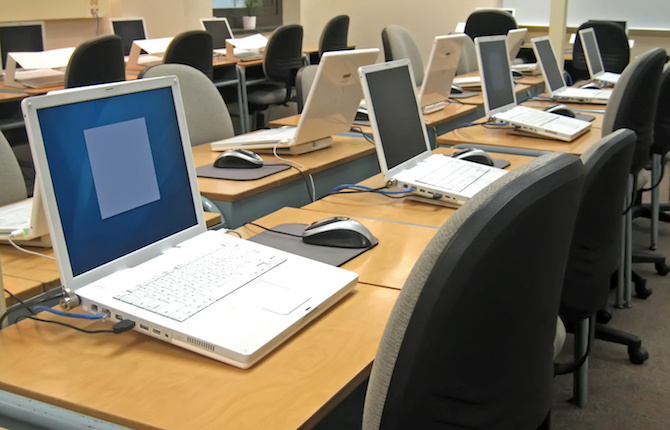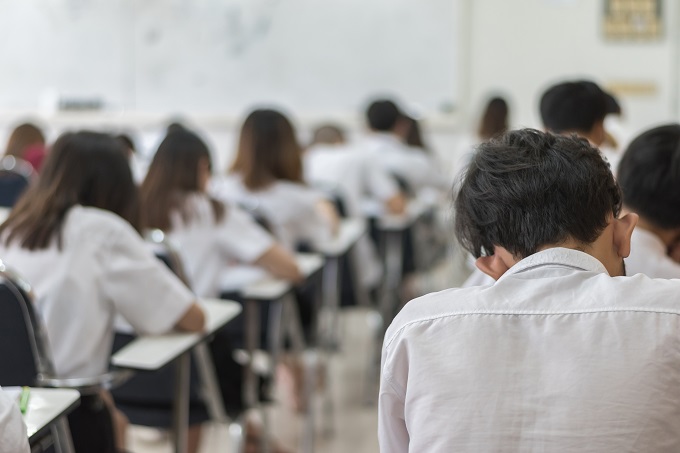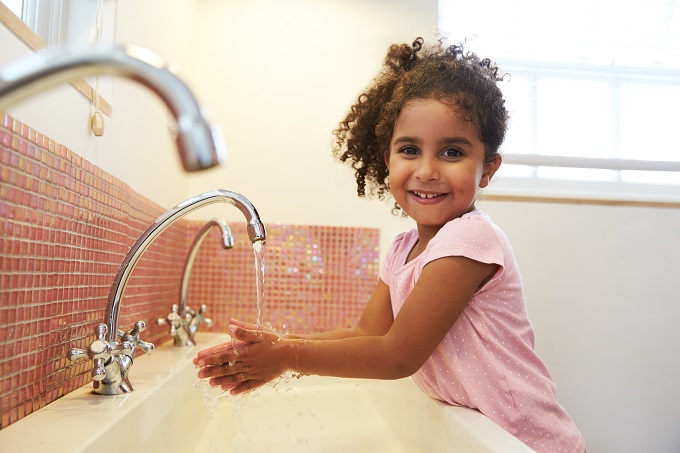Don’t calm down! Exam stress may not be fun but it can help you get better marks

Two-thirds of young people experience levels of exam stress that mental health organisation ReachOut describes as “worrying”.
Research shows high levels of exam stress can interfere with attention and reduce working memory, leading to lower performance. Early experiences of anxiety and stress can also set a precedent for mental-health problems in adulthood.
But how we see stress can actually make a difference to the way it affects us. Research shows if we believe stress is a helpful response that will increase our performance in a challenging event, it can be a tool that works to our advantage.
From good stress to bad stress
Stress is a normal experience when we have a challenging event. We can experience stress when learning something new, starting a new job or being in a race.
Our experience of “stress” is actually our body getting us ready to take on the challenge. A stress response is helpful as it can increase oxygen to the brain and improve attention, focus, energy and determination.
The runner in a race needs to be “stressed” to compete successfully. The young person sitting in an exam room needs it too.
Studies show people who are clear about their feelings are more likely to thrive on anxiety and stress and possibly use these to achieve their goals and find satisfaction at work.

Stress and anxiety can work for you. But they become bad when we evaluate events as a threat rather than a challenge and when we believe we don’t have enough resources to cope.
Exams are often treated as a threat because there is potential harm or loss related to our self-worth, identity, and commitments, goals and dreams. If we fail, we think we are a failure and we may never get the future we had hoped for. Our whole life is at stake.
How do we make stress good?
To put it simply, stress can be good if we believe it’s good. It’ll work for us if we develop a mindset that stress helps our performance, health and well-being (rather than seeing it as debilitating).
In a study from the United States, one group of young people were given information about stress before sitting an exam. The reading material explained stress was not harmful, but that it had evolved to help us cope and perform better. Another group were told to just ignore stress and suppress their emotions.
Researchers found the first group performed significantly better in the exam (average five marks improvement) than the group who used the ignore-and-relax approach.
In another study of exam stress, students who saw stress as an opportunity and used it for self-growth had increased performance and decreased emotional exhaustion. But students who saw stress as a threat showed decreased effort and performance.

These studies didn’t examine how to eliminate exam stress. Instead they examined a change in the way students responded to it. Here are some tips for you use stress to your advantage.
Four ways to make stress work for you
1. Read your body differently
Start to read your stress response as being there to help you prepare for the challenge. Instead of seeing it as a threat, try to see it as a coping tool. When you are experiencing stress, you can say to yourself:
I am feeling a little uncomfortable; my heart is beating faster, but my body is getting me ready to compete.
2. Reframe the meaning of the event
Rather than framing exams as a threat, try to frame them as a challenge. Part of the reason they are seen as a threat is because your whole future, identity and worth appear to be at stake. This is not true. Exams are one very small part of your life that does not decide your whole future.
There are always other options, different pathways and opportunities. Vera Wang failed to get into the Olympic ice-skating team and became a world famous dress designer. Sometimes the path we imagine looks a little different.
Not all journeys are straight, and the best ones can have diversions.
3. Accept stress and negative emotions
Some common ways people approach stress is to try to relax, ignore stress and try to reduce it. These approaches actually reinforce that stress is “bad” rather than accepting it as a natural and helpful response. These approaches also lead to poorer performance and emotional exhaustion.
Rather than ignoring the emotions, it’s better to feel them, accept them, and then try to use them to your advantage. You can say to yourself:
I feel this way because this goal is important to me, and my body is responding this way because it is getting me ready to perform.
4. Add to your resources
Clearly, changing your mindset is only helpful if you have the resources to cope. It would be like an athlete who is about to compete but has not trained. Put time into study, study in different ways (read, write ideas in your own words, talk about the ideas, draw them) and give yourself time to practise these ideas.
When you have done this, your stress response then draws on these resources.
Stress will always be present in our lives as we take on new challenges and grow as a person. When we see low-level stress as a threat it becomes one. It becomes a red flag that we are not coping, that these feelings are wrong and we should retreat. This is not true.
However, if you are feeling severe stress and anxiety in different settings and for an extended period of time you should see your GP and get support.







